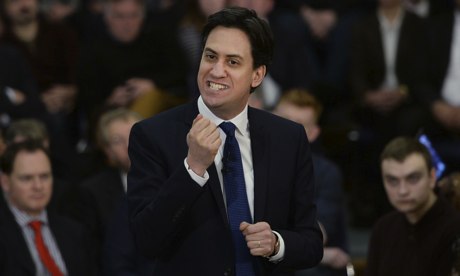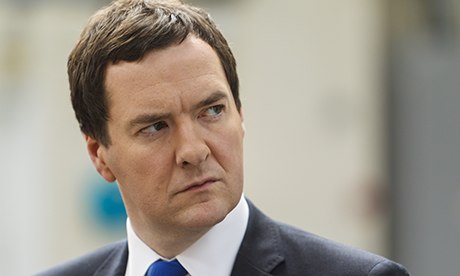FINANCE Minister Ishaq Dar has taken on the ungodly, un-Islamic, interest-charging banks of Pakistan. Your days are numbered, he thunders, because our government will implement the Federal Shariat Court’s ruling to end bank interest by Dec 31, 2027. On his orders, appeals challenging the FSC judgement made by the State Bank and National Bank will be withdrawn.
Some will applaud Mr Dar’s new-found religious zeal; others will find this crass opportunism. With national elections around the corner — and with PML-N’s arch-rival Imran Khan having pushed politics rightward — this smells of one-upmanship. Every politician in the government or opposition, clean or corrupt, wants to prove his sainthood.
But most readers will simply yawn — they’ve heard it before. Way back in 1991, the FSC had ordered Pakistan’s economy to dump interest within 12 months. Nothing happened. So recycling an order from 30 years later is no big deal.
Let’s imagine that Dar wins. Rewards or penalties for him in the Hereafter cannot, of course, be known. But this will not end ideological bickering on what interest-free banking actually is. Its two versions, soft and hard, are totally incompatible opposites.
In the first, at the end of a stipulated period the depositor expects — and receives — a sum exceeding his initial deposit. In another country, the excess is known as interest but in Pakistan they call it profit.
The depositor is clueless about wheeling-dealings inside board rooms and management offices. Nevertheless, heavy use of Arabic words and absence of ‘interest’ gives an Islamic veneer to the bank.
The hard version is uncompromising. In 2014, the top ulema of the Fiqhi Majlis declared that so-called Islamic banking merely re-labels interest as profit and so is hiyal (legalistic trickery).
They point to the explicit Quranic injunction: “Allah has permitted trade and has forbidden interest” (2:275). ‘Forbidden’, they say, is not negotiating low or middle or high. Forbidden means zero — haram is haram and interest is usury.
The influential Maulana Taqi Usmani, among others, takes this position. Bangladesh’s finance minister Dr Abul Muhith is blunter. He says Islamic banking deceives Muslims and is ‘all fraud’.
Early Muslim scholars thought similarly and had equated interest with usury. Since banks rely on income, banking in Muslim lands was absent until very recently. This impeded industrialisation, leaving Muslim countries far behind Europe. Eventually, realising that global trade and commerce are impossible without these Western innovations, Turkish and Egyptian rulers soft-pedalled religious restrictions.
The very first bank in a Muslim country was the Imperial Ottoman Bank (1856) followed by the Egyptian Arab Land Bank (1880).Pragmatic rulers first sought muftis willing to rubber-stamp European-style banking. Else they found those who could invent new definitions or rules.
Pakistan is doing similarly. Commercial banks repackage global financial products with some changed conditions. After a board of clerics chosen by the bank approves a product, it is advertised as Sharia-compliant.
This sanctifies credit cards, derivative products, cross-currency swaps, equity swaps, adjustable mortgages, etc. Are Bitcoin and cryptocurrency halal or haram? Believe whichever you prefer; muftis abound on either side.
One central fact, however, cannot be hidden. Commercial banks in a capitalist economy are profit-making businesses for their owners and shareholders. For this to happen, customers must be drawn into owning more cars, bigger houses, and fancy stuff. If fish could somehow pay, banks would be advertising deals for underwater TVs with 60-inch plasma screens.
Hence a much larger question: is it morally right for a bank to encourage conspicuous consumption amidst an ocean of poverty? The poorest and richest Pakistanis are denizens of different worlds that are poles apart in literacy levels, health outcomes, and living standards.
Urban slums reeking in misery stand in stark contrast to DHAs for the ultra-rich or those just out of uniform. When banks — Sharia-compliant or otherwise — persuade people to borrow more and consume more, does it signify devotion to God?
The answer, of course, should be an emphatic ‘no’. Indeed, the larger FSC judgement states that Pakistan as an Islamic state must have “an equitable economic system free from exploitations and speculations”. But what on earth does riba have to do with present-day inequities of wealth? Even as it flaunts religious symbols, Pakistan’s rapacious elite enriches itself through state capture.
According to the 2021 UNDP report, insider dealings yielded a staggering $17.4bn in the form of subsidies to the military, corporate sector, property developers, feudal landlords, and the political class.
Even this enormous figure pales before the vast wealth of Pakistan’s real estate, estimated at around $300-400 billion. Much of this came from kicking peasants off the lands they once tilled. Land reforms promised by Ayub Khan and Zulfikar Ali Bhutto never happened.
The FSC drove the final nail in the coffin in March 1990. Decreeing that land reform violates Islamic principles, it asserted the absolute right of a Muslim to limitless wealth. This flatly contradicts its own ruling on creating “an equitable economic system”.
Mr Dar’s victory will open another question: how is Pakistan to deal with the outside world after Jan 1, 2028? The FSC judgement is explicit: “the government is directed to adopt Sharia-compliant modes in the future while borrowing either from domestic or from foreign sources.”
Realistically, can Pakistan actually choose who to borrow from? For a country teetering at the edge of default, the answer is no. FSC’s religious scholars optimistically say, “China is also willing to utilise the Islamic mode of financing for CPEC projects”. But do they know how intensely China dislikes Islamic symbols? And that it is deliberately erasing the Islamic identity of Uighur Muslims?
To conclude: Mr Dar’s jihad to eliminate bank interest is a bid to distract from the grimness of the present economic landscape and the damning inequities therein. In fairness to him, fixing fundamental problems such as the small tax base, high indirect taxation, and heavy consumption of imported luxury items is beyond his pay scale. But such posturing could further embolden those — such as the fast rising TTP —who seek to dismantle Pakistan and recreate it as a theocratic state. As such it is a step backward.




